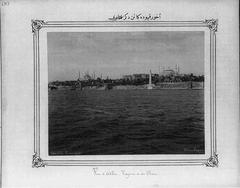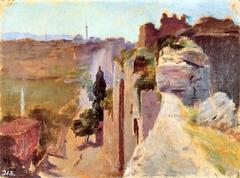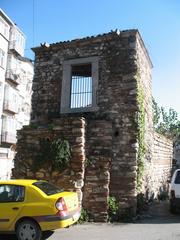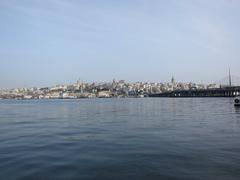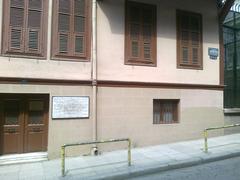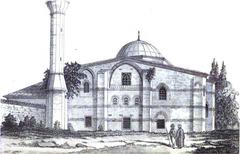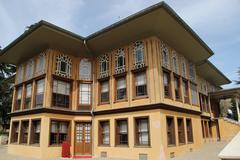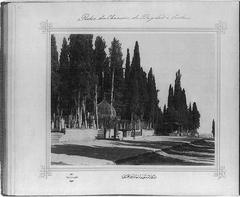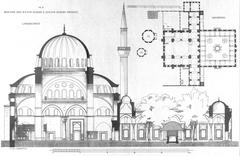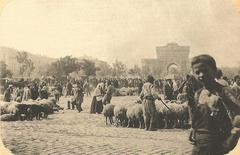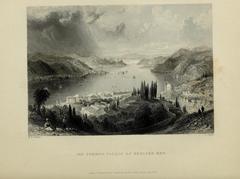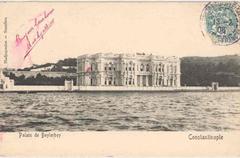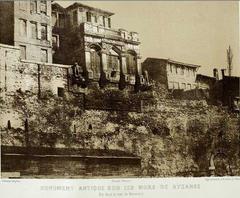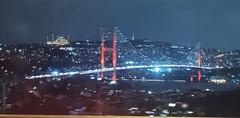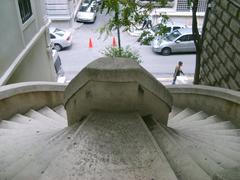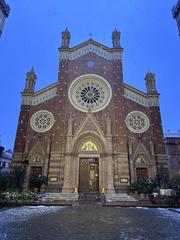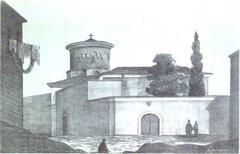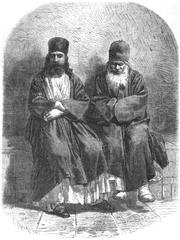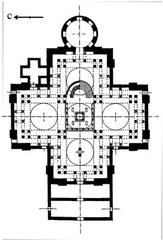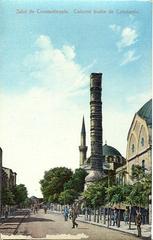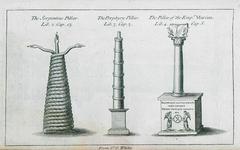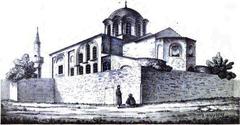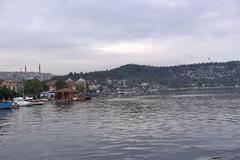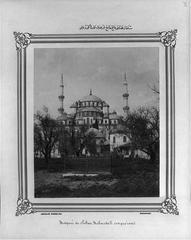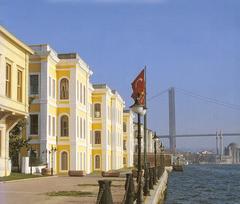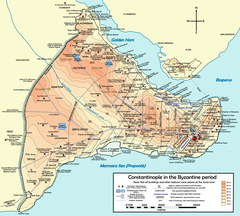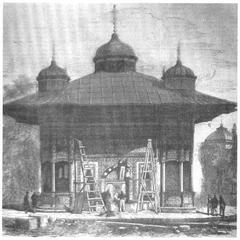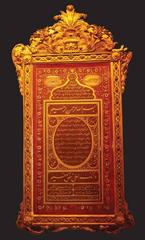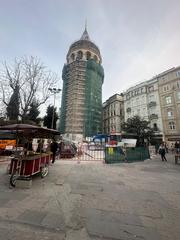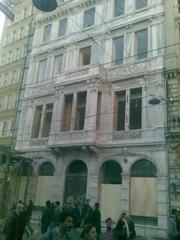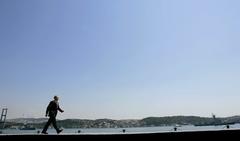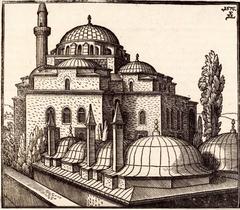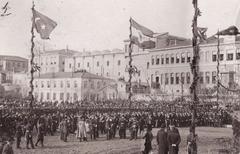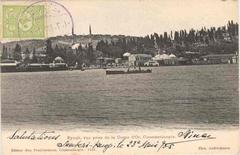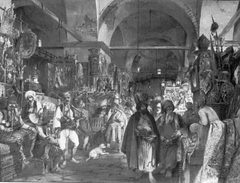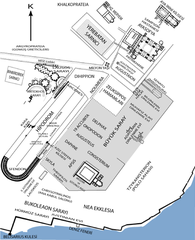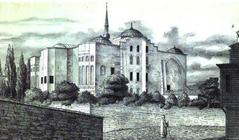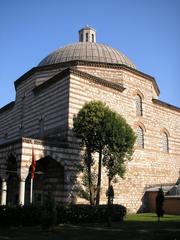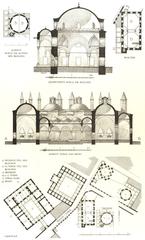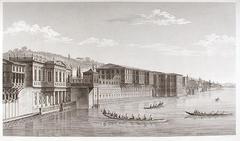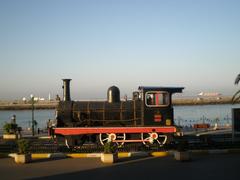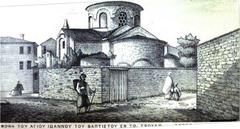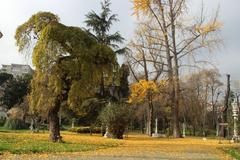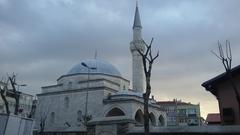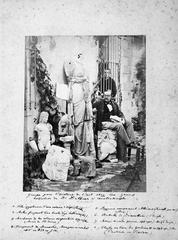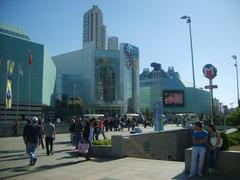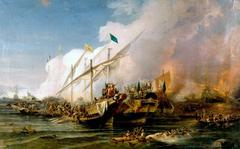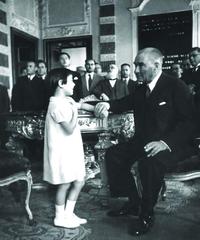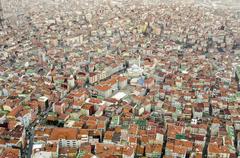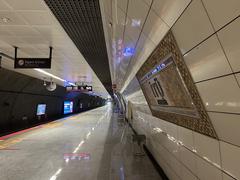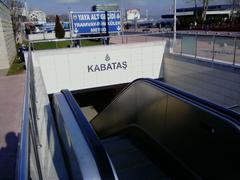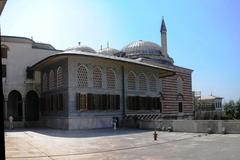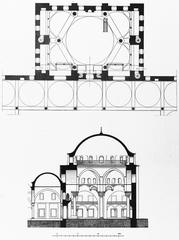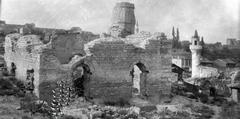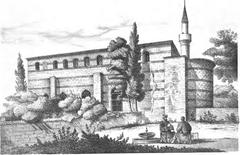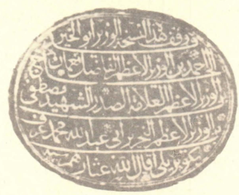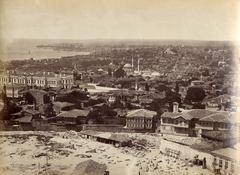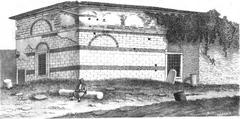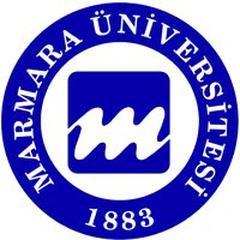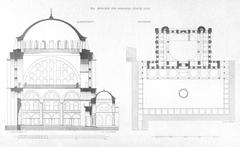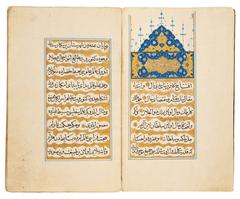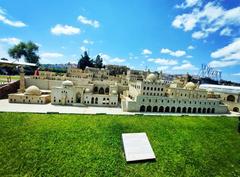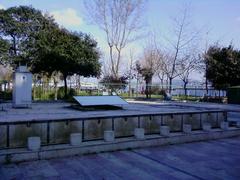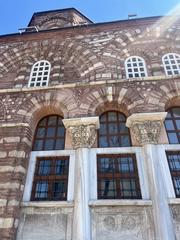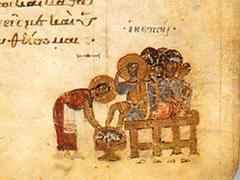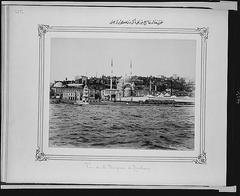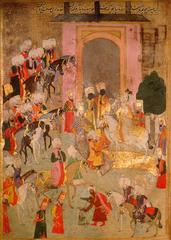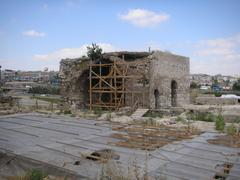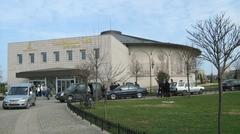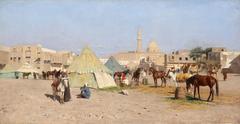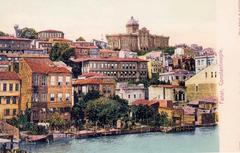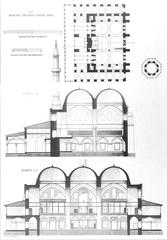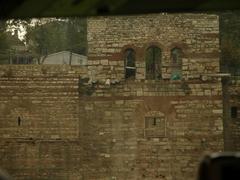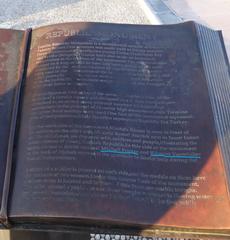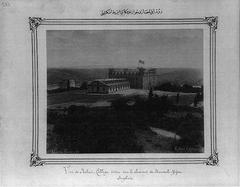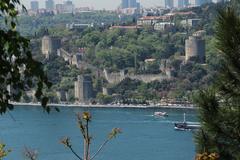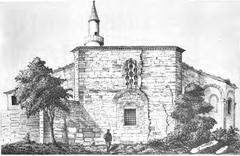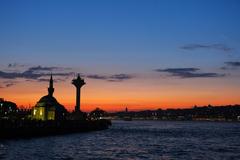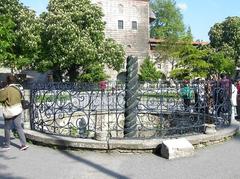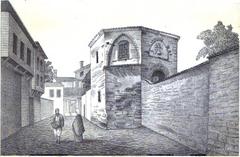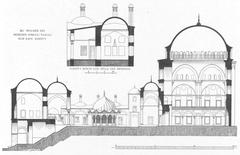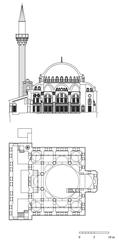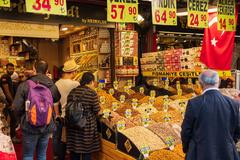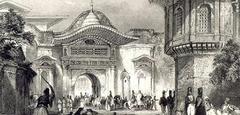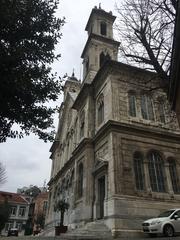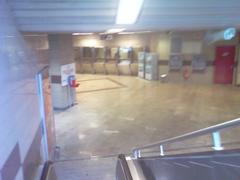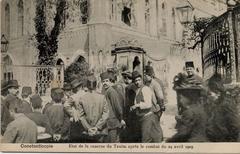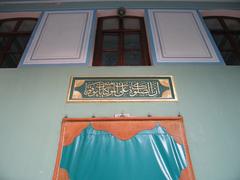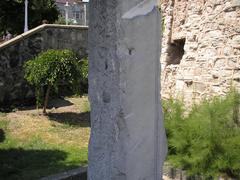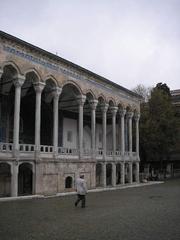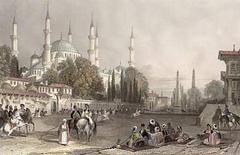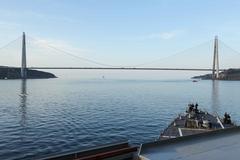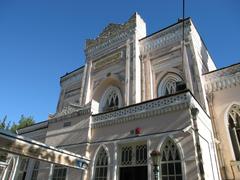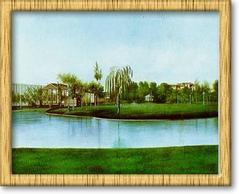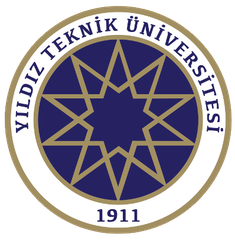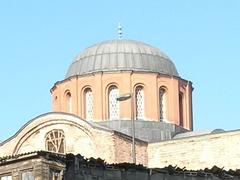Aksaray Istanbul Historical Sites: Visiting Hours, Tickets, and Visitor Guide
Date: 04/07/2025
Introduction to Aksaray Istanbul Historical Sites
Aksaray is a vibrant and historically rich neighborhood located in Istanbul, Turkey. With roots stretching back to the Byzantine Empire, it offers a compelling blend of ancient heritage and modern urban life. Once part of Byzantium’s southwestern quarter, Aksaray was home to significant religious and civic structures, including the Myrelaion Monastery (now Bodrum Mosque), and was closely tied to the Valens Aqueduct. After the Ottoman conquest in 1453, the area became a hub for Anatolian settlers from the city of Aksaray, giving the district its name and unique character. Today, Aksaray is celebrated for its multicultural population, bustling markets, and architectural landmarks such as the Pertevniyal Valide Sultan Mosque. Its central role in Istanbul’s transport network makes it a gateway for both locals and travelers. This guide explores Aksaray’s history, cultural significance, top attractions, and essential visitor information, including opening hours, ticketing, accessibility, and recommended tours. For additional insights, see Exploring Aksaray: Visiting Hours, Tickets, and Historical Sites in Istanbul and Discover Aksaray Istanbul: History, Culture, and Travel Tips.
Table of Contents
- Introduction
- Early Origins and Byzantine Foundations
- Ottoman Conquest and Urban Transformation
- Demographic and Cultural Evolution
- Architectural Heritage and Urban Change
- Aksaray as a Transportation and Commercial Hub
- Visiting Aksaray: Hours, Tickets, and Tips
- Landmarks and Historical Sites
- Frequently Asked Questions (FAQ)
- Conclusion
- Resources
Early Origins and Byzantine Foundations
Aksaray’s origins are deeply embedded in the history of Istanbul, formerly Byzantium and later Constantinople. In the Byzantine era, the district was a residential quarter near the Theodosian Walls, with notable religious sites such as the 10th-century Myrelaion Monastery, now Bodrum Mosque (mapcarta.com). The Valens Aqueduct, a monumental Roman structure completed in the 4th century, runs just north of Aksaray, highlighting the area’s strategic importance for water supply and defense.
Ottoman Conquest and Urban Transformation
Following the Ottoman conquest, Sultan Mehmed II encouraged Anatolian migration to repopulate and revitalize the city. In 1470, residents from the Anatolian city of Aksaray settled here, giving the neighborhood its name (investinaksaray.com). The Ottoman urban model developed around mosques and communal facilities, and Aksaray emerged as a civic and commercial center with its own külliye (mosque complex), markets, and social spaces (newlinesmag.com).
The area’s proximity to the Grand Bazaar and major mosque complexes, like Davud Paşa and Cerrahpaşa, reinforced its role as a bridge between faith and commerce.
Demographic and Cultural Evolution
Traditionally, Aksaray was a middle-class Muslim neighborhood, home to educators, civil servants, and religious scholars, while also being influenced by nearby Greek and Armenian communities. In recent decades, the population has shifted—by 2025, roughly 70% of residents are foreign-born, creating a multicultural environment with communities from Africa, Eurasia, and Eastern Europe (newlinesmag.com).
Architectural Heritage and Urban Change
While the 19th-century Pertevniyal Valide Sultan Mosque remains a landmark, much of Aksaray’s traditional architecture has been replaced due to modernization. Major thoroughfares such as Atatürk Boulevard and the Avenue of the Fatherland redefined the urban landscape, introducing new commercial and entertainment venues and transforming Aksaray into a center of secular modernity (mapcarta.com; newlinesmag.com).
Aksaray as a Transportation and Commercial Hub
Aksaray’s evolution into a transportation powerhouse is evident. The neighborhood boasts Istanbul’s key metro station (M1A), tram lines, and bus routes. The 2013 opening of the Marmaray rail tunnel, connecting Europe and Asia, further increased its importance (newlinesmag.com). The local bus terminal serves routes to the Balkans, Eastern Europe, and the Caucasus, making Aksaray a true crossroads of cultures.
Visiting Aksaray: Hours, Tickets, and Tips
Visiting Hours
- Mosques (e.g., Pertevniyal Valide Sultan & Bodrum Mosque): Daily, 9:00 AM – 6:00 PM. Closed during prayer times.
- Valens Aqueduct: Open-air monument, viewable at any time.
Tickets
- Mosques: Free entry; donations welcome.
- Guided Tours: Prices vary; book in advance with local operators or online.
Getting There
- Metro: M1A line (Aksaray Station).
- Tram: T1 line (Aksaray or Laleli-Üniversite stops).
- Bus: Multiple routes pass through Aksaray.
- Ferry: Nearby Yenikapı terminal for sea connections.
Accessibility
- Major sites offer improved access, but some historical buildings have limited wheelchair accessibility.
Guided Tours
- Walking tours and themed excursions highlight Aksaray’s history, markets, and cuisine.
Photography
- Top spots: Bodrum Mosque frescoes, Valens Aqueduct arches, bustling markets.
Special Events
- Local festivals, especially in spring and autumn, showcase Aksaray’s multicultural life.
Landmarks and Historical Sites
- Pertevniyal Valide Sultan Mosque: Eclectic Ottoman-European 19th-century design (mapcarta.com).
- Bodrum Mosque (Myrelaion): 10th-century Byzantine church turned mosque.
- Valens Aqueduct: 4th-century Roman engineering marvel.
- Grand Bazaar: Historic covered market, a short walk from Aksaray.
Frequently Asked Questions (FAQ)
Q: What are the main visiting hours for Aksaray’s historical sites?
A: Most are open daily, 9:00 AM – 6:00 PM; mosques close during prayer.
Q: Is there an entry fee for mosques?
A: No, entry is free; donations are appreciated.
Q: How do I access Aksaray using public transport?
A: Metro (M1A), tram (T1), and various buses serve Aksaray.
Q: Are guided tours available?
A: Yes, several operators offer historical and cultural tours.
Q: Where are the best photo spots?
A: Bodrum Mosque, Valens Aqueduct, and vibrant local markets.
Additional Insights: Aksaray’s Modern Role
Aksaray’s significance is not limited to history. Its strategic location connects the historic peninsula with modern districts, making it a vital transport node (betteristanbul.com). The Aksaray Metro Station is a major interchange, facilitating access across Istanbul, including direct links from the airport. The district’s multicultural population sustains a diverse culinary and commercial scene, with eateries serving Turkish, Middle Eastern, and Central Asian cuisines, and textile markets drawing both local and international buyers (betteristanbul.com).
While Aksaray is generally safe, exercise standard urban precautions, especially at night (theturkeytraveler.com). The area’s dynamic street life and economic activity are balanced by local community events and religious festivals, reflecting the neighborhood’s ongoing cultural vibrancy.
Resources and Further Reading
- Exploring Aksaray: Visiting Hours, Tickets, and Historical Sites in Istanbul
- Discover Aksaray Istanbul: History, Culture, and Travel Tips
- Migrants Thrive Where Slaves and Martyrs Once Crossed Paths
- Is Istanbul Safe to Travel?
Final Tips for Visiting Aksaray
- Plan ahead: Use public transport for easy access; check site-specific schedules.
- Respect local customs: Dress modestly when visiting mosques.
- Explore beyond landmarks: Sample diverse cuisines and visit neighborhood markets.
- Stay informed: Download the Audiala app for updates on tours, events, and cultural insights.
Aksaray offers an authentic slice of Istanbul’s layered identity, where ancient history, modern commerce, and multicultural life converge. Whether you’re exploring Byzantine relics, Ottoman mosques, or vibrant streets, Aksaray is a rewarding destination for travelers seeking the true pulse of Istanbul.
Sources:
- Exploring Aksaray: Visiting Hours, Tickets, and Historical Sites in Istanbul
- Discover Aksaray Istanbul: History, Culture, and Travel Tips
- Migrants Thrive Where Slaves and Martyrs Once Crossed Paths
- Is Istanbul Safe to Travel?
- Aksaray Travel Guide – Endless Cappadocia
- Aksaray Must-See Places – Turkish Museums
- Aksaray, Turkey – WildTrips
- Aksaray History – Invest in Aksaray

